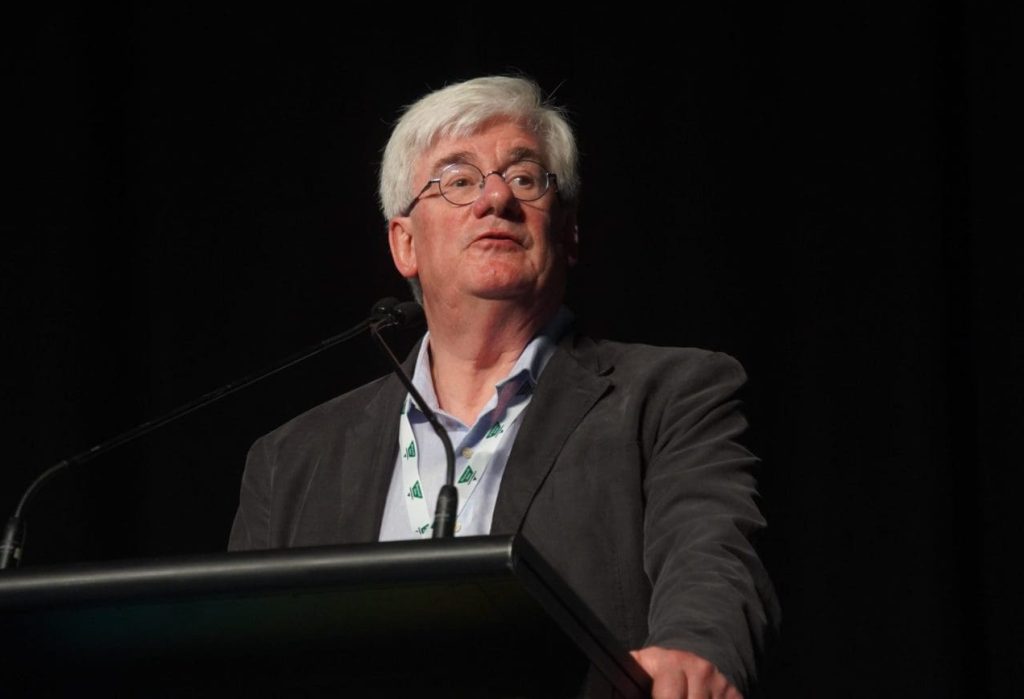
Economist Saul Eslake addressing the 2024 AgForce Conference in Brisbane yesterday.
A TRUMP Republican victory in the upcoming US election could see tariffs of 10 percent and as high as 20 percent slapped on Australian agricultural exports to the US, a prominent independent Australian economist has warned.
US voters are due to go to the polls in a month’s time, on Melbourne Cup Day – Tuesday 5 November.
Saul Eslake from Corinna Economic Advisory told delegates at the AgForce state farm organisation conference in Brisbane yesterday that partly – but not exclusively – due to Trump, there had been a return to the use of tariffs as an economic policy weapon.
“Tariffs on Australian agricultural exports have been creeping up. It’s not a huge escalation like the days of the pre-Uruguay Round of barriers to trade, but we could see a return to that if the American people, in their wisdom, decide to return a convicted felon to the White House at the US election next month,” Mr Eslake said.
“And that’s a distinct possibility. The opinion polls show that Kamala Harris has a lead over Trump, but the betting markets – often more accurate in these matters than the opinion polls – aren’t so sure.”
Mr Eslake explained to AgForce delegates that to get elected president of the United States, a candidate did not need a majority of the popular vote (George Bush did not in 2000, and Trump didn’t in 2016) – instead the candidate simply needed to win the electoral college vote, which is heavily weighted in favour of smaller states, where Republicans have long-established dominance.
“Kamala Harris would probably need to win the popular vote election by at least three percentage points in order to be sure of having the majority in the electoral college,” he said.
“The possibility that Trump might be returned to the White House next month cannot be dismissed at all.”
From an Australian perspective, Mr Eslake said two important features about Trump were:
- Firstly, he wanted to dictate to the US Federal Reserve how US interest rates are set, which would undermine confidence in the US dollar, resulting in its weakening. All else being equal, that would mean strengthening of the Australian dollar against the US$, which would be an adverse development for farmers exposed to exports.
- Secondly, Trump has pledged to not simply impose 100pc tariffs on everything that the US imports from China, but also to impose tariffs of at least 10pc on everything that the US imports from everywhere else.
“In fact in the last couple of weeks, he seems to have upped-the-ante on that, to 20pc,” Mr Eslake said.
“Trump appears to believe, as unfortunately far too many other US people believe, that tariffs are something that you make foreigners pay, in order to get their goods into your country. But the truth is, as every economist knows (but we’ve had trouble persuading lots of other people of this truth) that tariffs are actually something you make your own consumers pay to keep foreign-made products out.”
Mr Eslake said Trump’s tariffs on China did nothing to reduce the overall US trade deficit with China.
“What happened was that Chinese exports were diverted through third countries like Vietnam and Mexico, to the US – either simply by rebadging where they came from, or relocating production capacity out of China into countries like Vietnam.”
Mr Eslake said Australia was one of only very few countries that the US ran a trade surplus with.
“If you are running deficits of US$350-$400 billion a year, which the US has done for decades, then you are bound to be running deficits with most countries. All tariffs will do is re-allocate which countries you are running those deficits with.”
Trump had never been as rude to Australia as he had been with the US’s other traditional allies like Japan, Korea, Germany and other European countries – mainly because the US runs a trade surplus with Australia, he said.
“For people like Trump and others with his mindset, they believe that must mean Australia is playing fair. But actually, as we all know, it’s the US that isn’t playing fair, when it comes to agricultural trade, by putting what are still effectively quotas on our beef and lamb, and an outright ban on our exports of sugar to the US.
“But of course when the US plays unfairly, that’s OK,” Mr Eslake said. “In some American eyes, it’s only ever foreign countries who in the eyes of people like Trump play unfairly.”
US importance as a customer
Having said that, Mr Eslake illustrated that the US remained an important market for many Australian agricultural exports – in particular, beef (about 25pc of Australia’s annual exports – perhaps higher this year), lamb and some processed foods like wine.
“But if Trump were to come to office next month and impose 20pc tariffs on imports from Australia – notwithstanding the Free Trade Agreement that we have with the United States – it would be a significant blow to Australian beef producers, in particular,” he said.
“That uncertainty is there. But equally, Australian agricultural exporters have shown, in response to discriminatory actions taken against them by China in recent years, that they do have the capacity to successfully seek-out new overseas markets.
“It may be that Australian farmers have to do that again, in respect to their exports to the US – just as they had to in respect to China.”



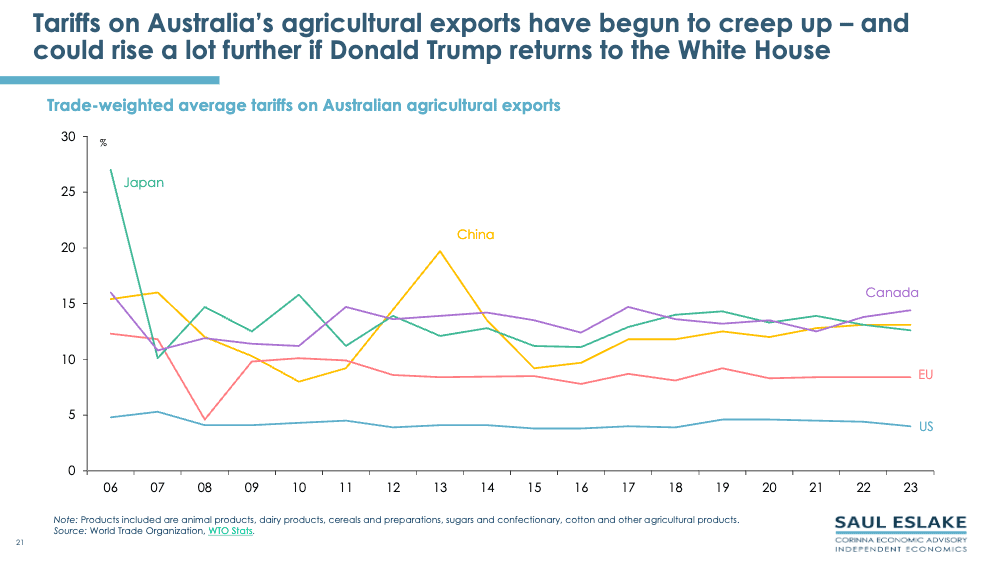
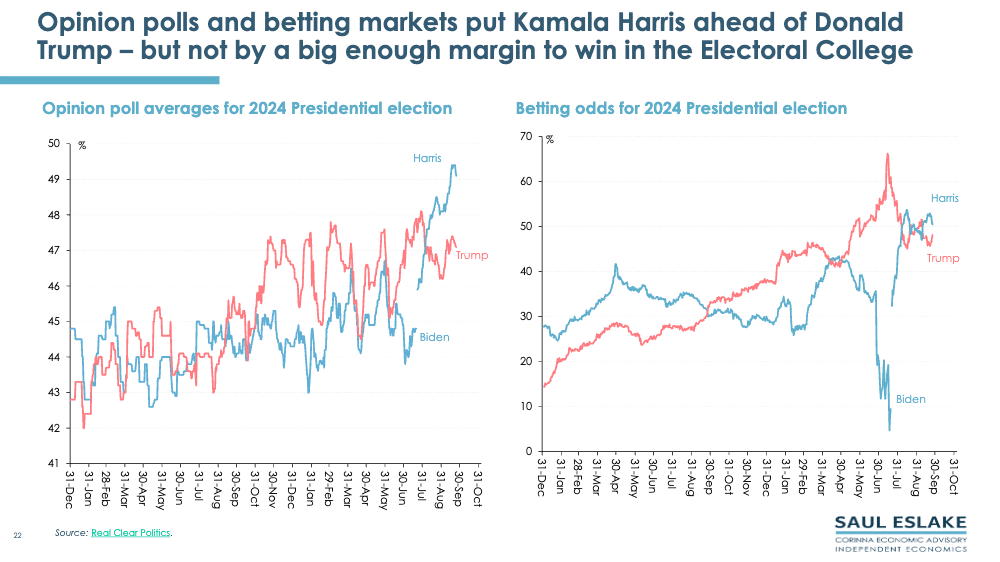
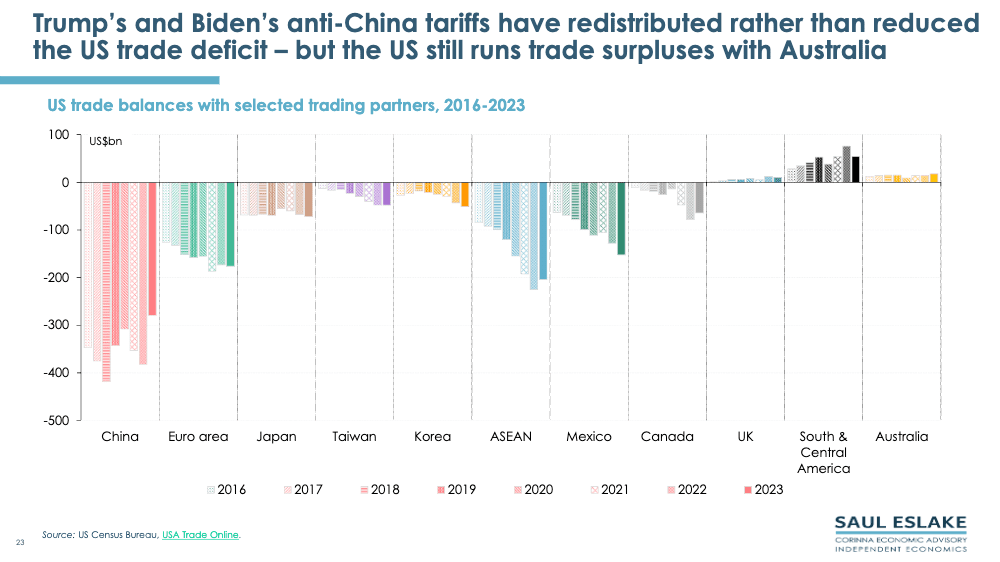
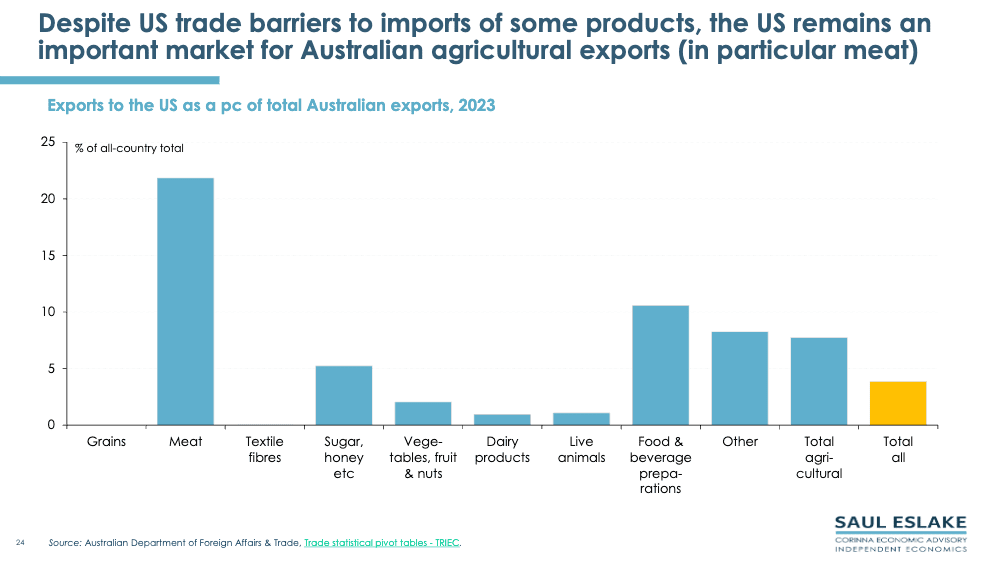
HAVE YOUR SAY